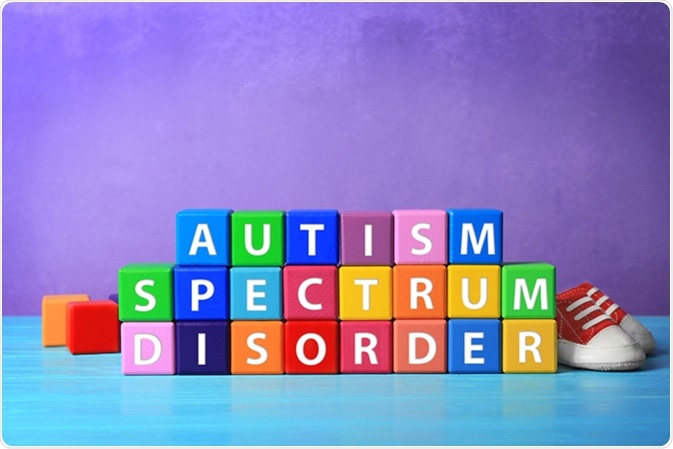Cognitive behavioral therapy is used to treat a variety of conditions including autism spectrum disorder (ASD). The talking therapy can help patients manage their problems by helping them recognize and understand how their behaviors, thoughts, and emotions affect each other.

Image Credit: Africa Studio
What is Cognitive Behavioral Therapy?
Cognitive behavioral therapy (CBT) is a therapy that aims to get patients to recognize their own thoughts, expectations, and attitudes in order to change false and negative beliefs. It is one of the most common types of psychotherapy and consists of a combination of two approaches; cognitive and behavioral therapy.
Research has found the approach to be effective in treating a broad range of emotional and mental health issues and aims to help the patient identify and challenge negative and unhelpful thoughts. At the same time, the patient can learn practical self-help strategies to cope with their condition.
How Does it Work?
Cognitive behavioral therapy stems from “behaviorism”, a psychological approach that works under the assumption that all human behavior is learned. Therefore, from a behaviorist point of view, new behaviors can be learnt, and existing ones unlearned. The purpose of cognitive behavioral therapy is to change thinking and certain behaviors that prevent positive results.
While other psychotherapy methods involve exploring the past to learn about the feelings of the patient, CBT concentrates more on the “here and now” and on the patient’s current thoughts and beliefs.
In CBT, the counselor helps the patient understand their problem by breaking it into smaller parts. As a result of this, they might find it easier to see how the parts are connected and the impact they have on their thoughts and emotions. The different components the counselor might explore include the situation, thoughts, emotions, physical feelings and actions.
When the patient can recognize these parts, they can easily determine the problem, its effects, and how to deal with it. As a result, with CBT, patients can learn to swap their negative thoughts with more positive ones.
CBT can help with various psychological disorders including anxiety, panic disorders, depression, eating disorders, stress, post-traumatic stress , obsessive-compulsive disorder, psychosis, and bipolar . More recently, it has also been used to treat other conditions such as autism spectrum disorder.
What is Autism Spectrum Disorder?
ASD is a developmental disorder characterized by marked engagement in repetitive behaviors, deficits in the ability to freely communicate and interact socially with others. Individuals with the disorder tend to also have restricted interests and a combination of these symptoms often impact an individual’s ability to manage their daily life.
Benefits of Cognitive Behavioral Therapy for Autism
Reduce anxiety in patients with autism spectrum disorder
Anxiety is a common and impairing problem in those with autism. Many patients with autism will also receive another diagnosis, with several medical conditions linked to the disorder.
According to a study by researchers at York University, about 70% of children with autism will face some form of emotional problems. Approximately half of these children will have anxiety and 25-40% percent will experience anger or depression. Furthermore, the study found that CBT helped patients with autism to cope with, and manage, not only their anxiety, but also any additional emotional issues they experienced.
Help Patients Handle Stressful Situations
Children and adolescents with autism may have difficulty handling stressful situations. Cognitive behavioral therapy is recommended for children with mild symptoms of autism. The therapy aims to define the triggers of certain behaviors, so the child can identify the scenarios themselves. For instance, when children learn the practical responses needed for a certain situation, they will also learn to cope with any accompanying anxiety and fear. As a result, they can reduce negative thoughts and swap them with positive ones.
Help Individuals to Change Maladaptive Beliefs
Those with autism may show maladaptive beliefs, which can be defined as beliefs that are false or irrational, including negative thoughts. Some of these beliefs include “all or nothing” thinking. This unhelpful thinking style is also called “black and white” thinking, wherein the patient thinks about the extremes of a situation. For instance, if a patient thinks about their ability to complete a task, they might say they’ll do really well or terribly.
Another negative thinking style is when the patient generalizes everything based on a single event. If an individual with autism fails a task, they may believe that they’ll fail any other tasks they’re set. Lastly, personalization is a negative thinking style wherein the patient blames themselves for something that was not completely their fault. Cognitive behavior therapy has been found to be effective in addressing these thinking styles in those with autism.
Cognitive behavioral therapy has been present since the 1960s, and it’s still being used until today. Aside from mental health issues, CBT has been proven to be effective for children and adolescents with autism.
Further Reading
Last Updated: Oct 11, 2022